Filter by
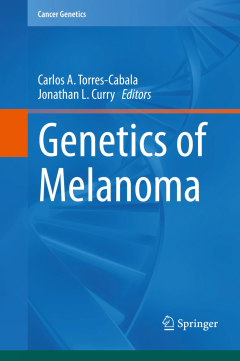
Genetics of Melanoma
This book discusses the molecular, biological, pathological, and clinical aspects of melanoma, with special emphasis in the new concepts of melanoma genetics. A multidisciplinary group of experts in Genetics, Dermatology, Pathology, and Melanoma Medical Oncology contribute state-of-the-art knowledge in melanoma research and clinical management, not only exposing the current status of knowledge …
- Edition
- -
- ISBN/ISSN
- 978-1-4939-3552-9
- Collation
- XV, 288
- Series Title
- -
- Call Number
- 616 Gen
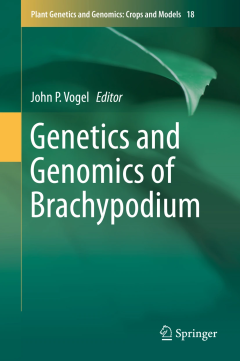
Genetics and Genomics of Brachypodium
Grasses dominate many natural ecosystems and produce the bulk calories consumed by humans either directly in the form of grains or indirectly through forage/grain fed animals. In addition, grasses grown as biomass crops are poised to become a significant source of renewable energy. Despite their economic and environmental importance, research into the unique aspects of grass biology has been ha…
- Edition
- -
- ISBN/ISSN
- 978-3-319-26942-9
- Collation
- XII, 353
- Series Title
- -
- Call Number
- 581.15 VOG g
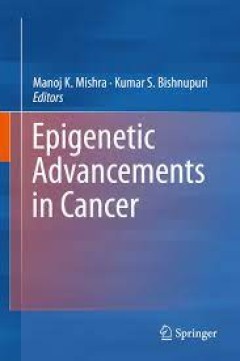
Epigenetic Advancements in Cancer
This volume explores the epigenetic alterations and their association with various human cancers. Considering one of human cancer as an example, individual chapters are focused on defining the role of epigenetic regulators and underlying mechanisms in cancer growth and progression. Epigenetic alteration including DNA methylation, histone modification, nucleosome positioning and non-coding R…
- Edition
- -
- ISBN/ISSN
- 978-3-319-24951-3
- Collation
- 1 b/w illustrations, 11 illustrations in colour
- Series Title
- -
- Call Number
- -
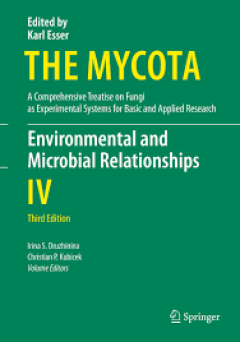
Environmental and Microbial Relationships
This volume provides insights into current research on fungal populations, communities and their interactions with other organisms. It focuses on fungal responses to the physical environment; interactions with bacteria, other fungi, invertebrates and plants; the role of fungi in ecosystem processes such as decomposition and nutrient cycling; and aspects of biogeography and conservation. Since …
- Edition
- -
- ISBN/ISSN
- 978-3-319-29532-9
- Collation
- 15 b/w illustrations, 25 illustrations in colour
- Series Title
- -
- Call Number
- -
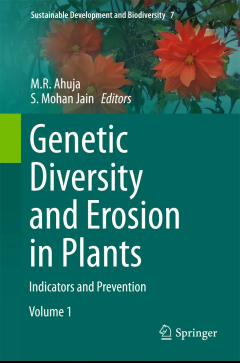
Genetic Diversity and Erosion in Plants
Genetic erosion is the loss of genetic diversity within a species. It can happen very quickly, due to catastrophic events, or changes in land use leading to habitat loss. But it can also occur more gradually and remain unnoticed for a long time. One of the main causes of genetic erosion is the replacement of local varieties by modern varieties. Other causes include environmental degradation, ur…
- Edition
- -
- ISBN/ISSN
- 978-3-319-25635-1
- Collation
- X, 323
- Series Title
- -
- Call Number
- 630
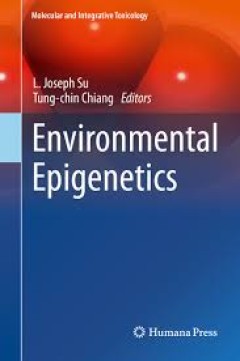
Environmental Epigenetics
This book examines the toxicological and health implications of environmental epigenetics and provides knowledge through an interdisciplinary approach. Included in this volume are chapters outlining various environmental risk factors such as phthalates and dietary components, life states such as pregnancy and ageing, hormonal and metabolic considerations and specific disease risks such as cance…
- Edition
- -
- ISBN/ISSN
- 978-1-4471-6678-8
- Collation
- 5 b/w illustrations, 33 illustrations in colour
- Series Title
- -
- Call Number
- -
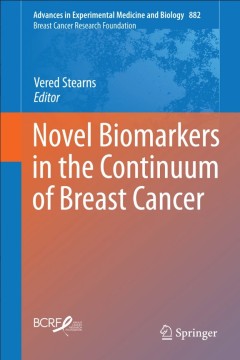
Novel Biomarkers in the Continuum of Breast Cancer
This volume provides a comprehensive review of established and novel biomarkers across the continuum of breast cancer. The volume covers topics related to breast cancer risk and prevention, prediction of response to today’s standard therapies, and markers capable of influencing treatment decisions in the near future. Chapter authors combine their wide-ranging expertise to review the current s…
- Edition
- 1
- ISBN/ISSN
- 978-3-319-22908-9
- Collation
- XIX, 279
- Series Title
- Advances in Experimental Medicine and Biology
- Call Number
- -

Encyclopedia of Metagenomics Genes, Genomes and Metagenomes. Basics, Methods…
Metagenomics has taken off as one of the major cutting-edge fields of research. The field has broad implications for human health and disease, animal production and environmental health. Metagenomics has opened up a wealth of data, tools, technologies and applications that allow us to access the majority of organisms that we still cannot access in pure culture (an estimated 99% of microbial lif…
- Edition
- -
- ISBN/ISSN
- 978-1-4899-7478-5
- Collation
- 39 b/w illustrations, 178 illustrations in colour
- Series Title
- -
- Call Number
- -

Encyclopedia of Metagenomics Environmental Metagenomics
Metagenomics has taken off as one of the major cutting-edge fields of research. The field has broad implications for human health and disease, animal production and environmental health. Metagenomics has opened up a wealth of data, tools, technologies and applications that allow us to access the majority of organisms that we still cannot access in pure culture (an estimated 99% of microbial lif…
- Edition
- -
- ISBN/ISSN
- 978-1-4899-7475-4
- Collation
- 41 b/w illustrations, 122 illustrations in colour
- Series Title
- -
- Call Number
- -
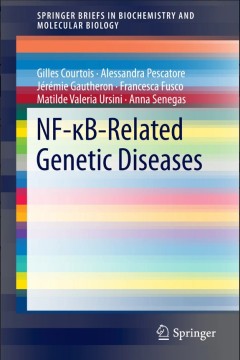
NF-κB-Related Genetic Diseases
This book presents the diverse clinical, cellular and molecular manifestations of NF-KB-related genetic diseases. It shows that studying patient-related pathologies affecting the components of the NF-KB signaling pathway offers the opportunity to understand the various functions of NF-KB in humans, complementing studies performed with mouse models. In addition, people treating those patients ac…
- Edition
- 1
- ISBN/ISSN
- 978-3-319-25848-5
- Collation
- XII, 70
- Series Title
- SpringerBriefs in Biochemistry and Molecular Biology
- Call Number
- -
 Computer Science, Information & General Works
Computer Science, Information & General Works  Philosophy & Psychology
Philosophy & Psychology  Religion
Religion  Social Sciences
Social Sciences  Language
Language  Pure Science
Pure Science  Applied Sciences
Applied Sciences  Art & Recreation
Art & Recreation  Literature
Literature  History & Geography
History & Geography